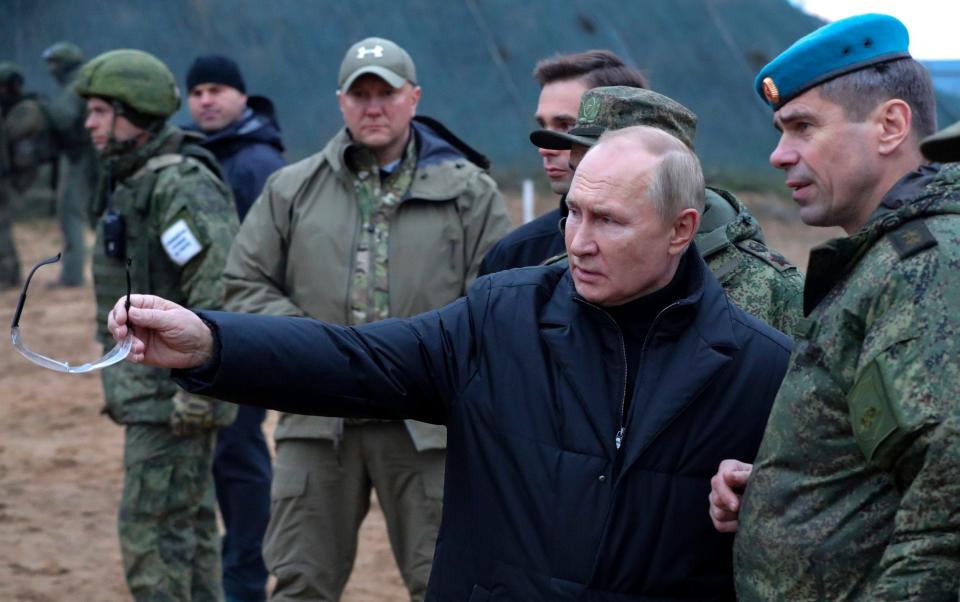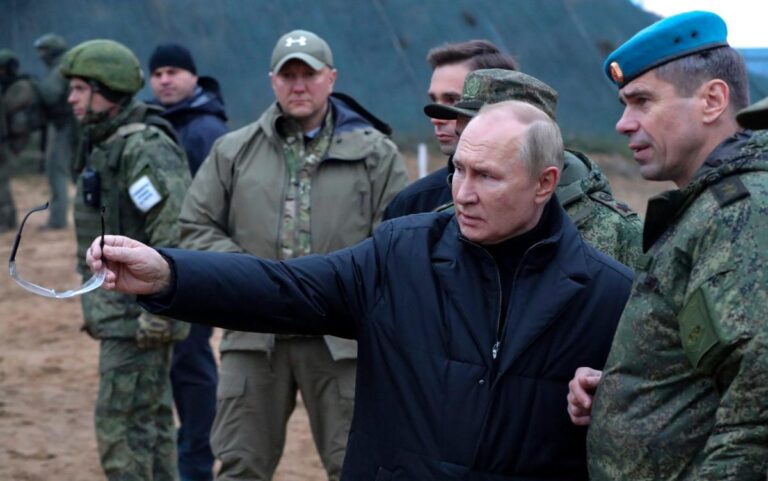
Vladimir Putin’s Russia is preparing “physical attacks” on the West, the head of GCHQ has warned, as British and US intelligence services exposed the dual threats posed by Moscow and Beijing.
Anne Keast-Butler, who was appointed to lead Britain’s signals intelligence operations Last May, she used her first major speech to highlight the immediate threat posed by the Kremlin and the “historic” risk that China represents for the United Kingdom and its allies.
The director of GCHQ told a gathering of cybersecurity experts in Birmingham that her agency believed Moscow was seeking to go further than just attacks in cyberspace.
The wire service is “increasingly concerned about growing links between Russian intelligence services and proxy groups to carry out cyberattacks – as well as suspicions of physical surveillance and sabotage operations.”
Ms. Keast-Butler, who is the first woman to hold the position in the agency’s 105-year history, said Moscow was “nourishing and inspiring.” cyberattack groupsand “in some cases, apparently coordinating physical attacks against the West.”
Last week, a British man was charged with an arson attack in London and accused by prosecutors of working for the Wagner Group, the Russian paramilitary organization.
Speaking at the CyberUK conference, Ms Keast-Butler said “Putin has not abandoned his maximalist goal of subjugating the Ukrainian population”.
She added that the UK’s support for kyiv remained “unwavering”, with British spies continue to reinforce the countrycyber defenses.


Russia has long been accused of protecting cyber gangs that target Western organizations, allowing them to operate with impunity when carrying out sophisticated hacks.
Last week the National Crime Agency named Dmitry Khoroshev, a Russian national, as the person behind LockBit – a ransomware group that had stolen hundreds of millions of pounds from businesses.
Royal Mail was the victim of a LockBit last year, after the Russia-based gang crippled the postal service’s ability to send letters and packages overseas.
Before that, LockBit also targeted London-listed car dealership Pendragon, jamming computers at its 200 sites and demanding a £60 million ransom to unblock them.
Directing physical attacks toward the West would represent an escalation of Moscow’s hostility toward the West.
Despite the growing threat from Russia, Ms Keast-Butler said China was using “more resources… than any other mission” at GCHQ.
Ms Keast-Butler said China posed the biggest threat to Britain, posing a “real and growing cyber risk to the UK”.
While asserting that the UK was willing to engage with China on “mutually beneficial” areas, such as climate change or artificial intelligence security, Ms Keast-Butler added that “the PRC ( People’s Republic of China) poses a significant risk to the international community. norms and values”.
She said China was seeking to shape global technology standards “in its favor” and wanted to “assert its dominance over the next 10 to 15 years.”
The warning about China comes days after the emergence of a Department of Defense contractor hacked in an attack blamed on Beijing. Payroll data for 270,000 current and former military personnel was compromised in this breach.
The US government has also accused China of going to great lengths to infiltrate its critical infrastructure. via a hacker group called Volt Typhoon.
U.S. officials believe the group sought to penetrate dormant water facilities, power grid and transportation systems with tools that can be triggered in the event of conflict.
Harry Coker, White House national cybersecurity director, who also appeared at CyberUK, warned that China could use its “prepositioned” hacking assets to “wreak havoc on critical civilian infrastructure to deter mobility.” American” in the event of a conflict.
Felicity Oswald, director general of the National Cyber Security Centre, GCHQ’s cyber arm, said: “This is a clear warning of China’s intention to put critical networks at risk. And it’s a warning that essential service providers in the UK cannot afford to ignore.
Lord Cameron, the foreign secretary, summoned China’s ambassador to the UK to a meeting after three people were charged Monday with espionage for Hong Kong.
A Foreign Office spokesperson said the government “has unequivocally stated that China’s recent behavior towards the UK, including cyberattacks, reports of espionage links and l “Issuing bonuses is not acceptable.”


